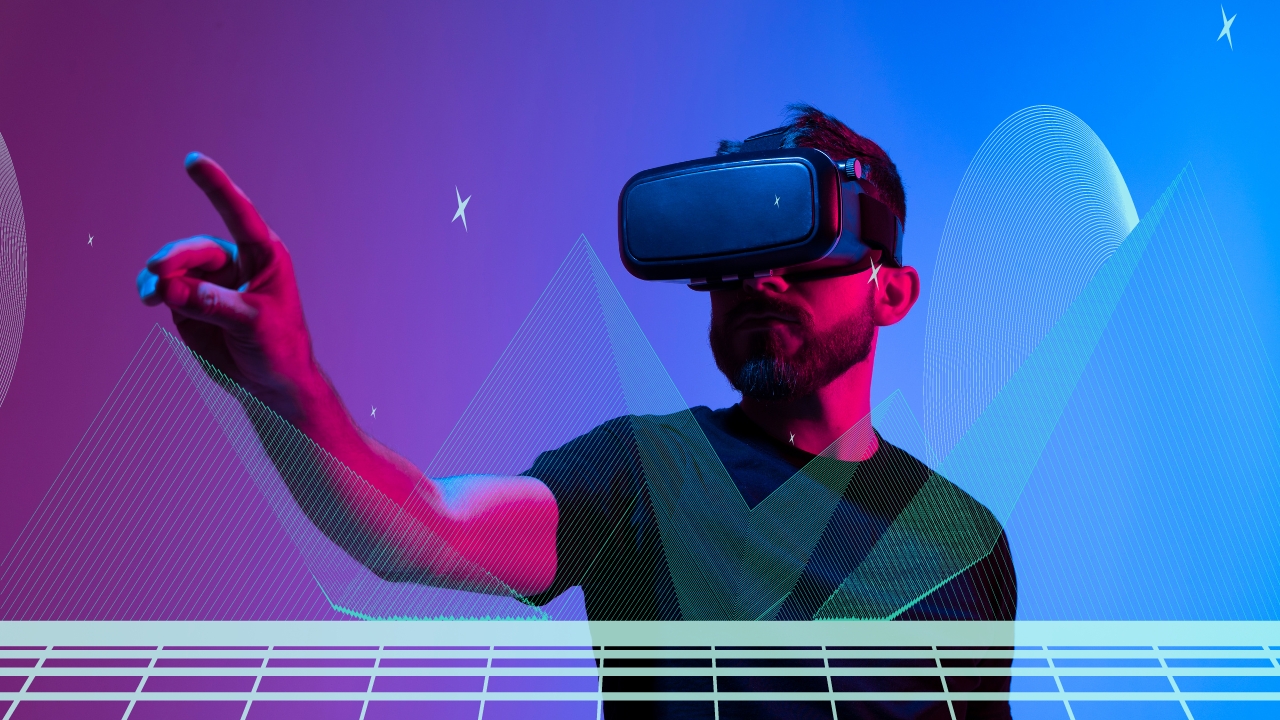
If you’re interested in the Crypto and NFT space, you’ve almost certainly heard the term “Metaverse” before. But even if Bitcoin and Bored Ape NFTs don’t interest you, there’s a good chance you’ve heard of the Metaverse through companies such as Meta, previously known as Facebook, until they decided that they wanted their name to reflect where they thought their future lay, showing just how big of a future the metaverse could have.
But even for people who read the term “metaverse” every day, being able to accurately describe what it is isn’t an easy task.
However, that’s exactly what we’re going to do here, so read on to find out what it is, how it started, and what it could mean for you.
What is the metaverse?
Describing what the metaverse is, isn’t too dissimilar a task to trying to describe what the internet is.
In essence, the metaverse is a fully immersive virtual 3D space where people can interact with each other. While many video games, such as Minecraft and Roblox, have been utilising this sort of technology for years, the metaverse is set to expand on this.
If you’ve seen the film or read the book “Ready Player One”, this might give you an idea of where the metaverse could be heading.
Just how it will do this is still up for debate. It’s still early days, so predicting its full potential is difficult. But with companies such as Meta, Google and Microsoft investing heavily in metaverse technologies, you can bet that there’s going to be some exciting developments over the next few years.
Where did the metaverse come from?
The term “metaverse” was first coined in 1992 by Neal Stephenson in his novel Snow Crash.
However, the technology behind the metaverse has been developed over the last 70 years, starting with Morton Heilig’s first VR machine, the Sensorama Machine. Created in 1956, it simulated the experience of driving a motorbike through the use of 3D video, audio, scents, and a vibrating chair.
Since then, VR technology has come on leaps and bounds, particularly since the creation of the Oculus Rift VR headset in 2010. Following its success, companies such as Facebook, Sony and Samsung began to pour money into creating their own VR headsets, and by doing so created one of the tools through which people can access the metaverse.
Who owns the metaverse?
Again, in this sense the metaverse is similar to the internet – nobody owns it. However, many companies, particularly gaming companies, have already started to build their own worlds within the metaverse, which they will own.
But other worlds are being created outside of the gaming sphere through the use of blockchain technology, with NFTs being the currency. Virtual concerts, digital museums, and virtual land are all ways in which people are taking advantage and some ownership of this exciting technology.
How can I become part of the metaverse?
There are two key ways you can become part of the metaverse: as a user, and as an investor.
As a user, you’ll interact in different worlds, whether it be gaming or some other digital activity. Fortnite has hosted several virtual concerts that demonstrate how the metaverse can be enjoyed in other ways.
As an investor, you’ll have a wide variety of options. You can purchase virtual land through companies such as The Sandbox, or you can buy NFTs such as gaming skins, artwork, concert tickets, and more. The possibilities are endless.
Do I have to be scared of the metaverse?
Absolutely not. Just like people had fears over the internet, they’re mostly unfounded and exaggerated. People aren’t going to lose touch with the real world and start living their lives in a virtual world.
The metaverse provides everyday people with an exciting new way to immerse themselves in a digital world, where you can meet friends, visit new places, learn new things, and attend experiences that you might not normally be able to attend.
What about the professional sector?
As a business tool, there are infinite possibilities to adding to your business including a larger pool of employees and clientele, fewer overheads for multiple offices and even better quality meetings if the alternative is a video call.
There are several established accountancy firms already operating within the Metaverse. This opens up a centralised location for all members to congregate in, have meetings and develop their business.
Working from home and working from the office have several different benefiting attributes. The Metaverse has offered a happy medium whereby you have the ability to work from home but at the same time have an almost uncanny face to face interaction with your co workers and maybe even clientele. This may aid with client and staff retention long term.
With globalisation and how we are all expanding into different jurisdictions, the Metaverse may help accelerate your business plan by offering a place for, not only staff members but, clientele to gather and work together.
To round up…
The metaverse isn’t something to run away from, if anything you’re probably utilising more than you already know, especially if you recently jumped on the ai trend all over Instagram. How you choose to dive in is up to you, but we’re fully on board over here at the Nephos Group & looking for incredible ways to continue growing with it….. and you may see us even more immersed in the not-to-distant future…..!
